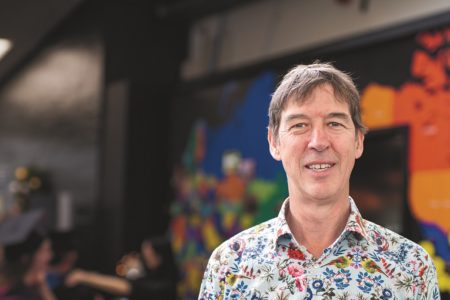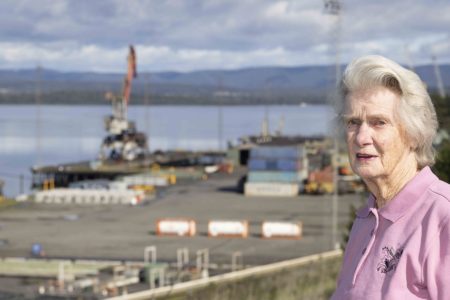By Andrew Humphries
Almost 30 years ago, John and Jenny Preston met a remarkable woman whose influence would propel them on a journey of discovery and mission which marks its 25th anniversary this year.
That woman was Harriet Sianjibu-Miyato, a human dynamo determined to make a difference in her home country of Zambia.
In 1996, Jenny, a Uniting Church Deacon and John, who enjoyed a long career in administration, finance and property roles within the Synod of Victoria and Tasmania, made their first visit to Zambia, a country filled with some of Africa’s poorest people.
This year, the Prestons are celebrating a quarter of a century of support and dedication to the people of Zambia, something that would never have happened if not for that first meeting with Harriet.
Three decades after they first met, Jenny can still recall her first glimpse of the woman, described as “the mother of Zambia’s orphans and vulnerable children”, who would have such a profound impact on their lives.
“I had just finished my theology degree and I was doing a year of community development at Bennettswood, which was part of the Uniting Church in East Burwood at the time,” Jenny recalls of their first meeting in 1992.
“Harriet came into worship one morning, all dressed in white, and said ‘is this like my United Church of Zambia’ and I said ‘of course it is’.”
Harriet was on an AusAid scholarship at the time, studying a Masters in Health Education at Deakin University and already committed to driving educational change in her beloved Zambia.
“We discovered that AusAid had put Harriet in a little flat, but she had nothing in it, so we got her a bed and chairs and a table and things like that,” Jenny says.
From small acts like that, a wonderful friendship grew.
On her return to Zambia, Harriet and the Prestons kept in touch and, in 1996, John and Jenny decided they would include a side trip to Zambia to see Harriet as part of a visit to South Africa.
What they saw in Zambia opened their eyes and became the catalyst for 25 years of selfless dedication to Zambia’s poorest and most vulnerable citizens.
“Our friend Harriet was trying to get some sort of community school movement going and it centred around taking the most educated person from a village and giving them a training manual for teaching,” John says.
“That meant they could then set up under a tree or in a container or wherever they could get a space and begin to teach, and there were about 25 community schools when we arrived.”
During their visit, the Prestons became aware that deafness was another issue seriously affecting many Zambian children.
“We were taken to the Zambia National Association of the Hearing Impaired and we found that hundreds of children had become deaf because of ear infections caused by dirty fingers in earlobes, otitis media, and inadequate clean water for hand washing,” John recalls.
“There were no antibiotics available in rural villages to cure it so we started off by getting second-hand hearing aids.”
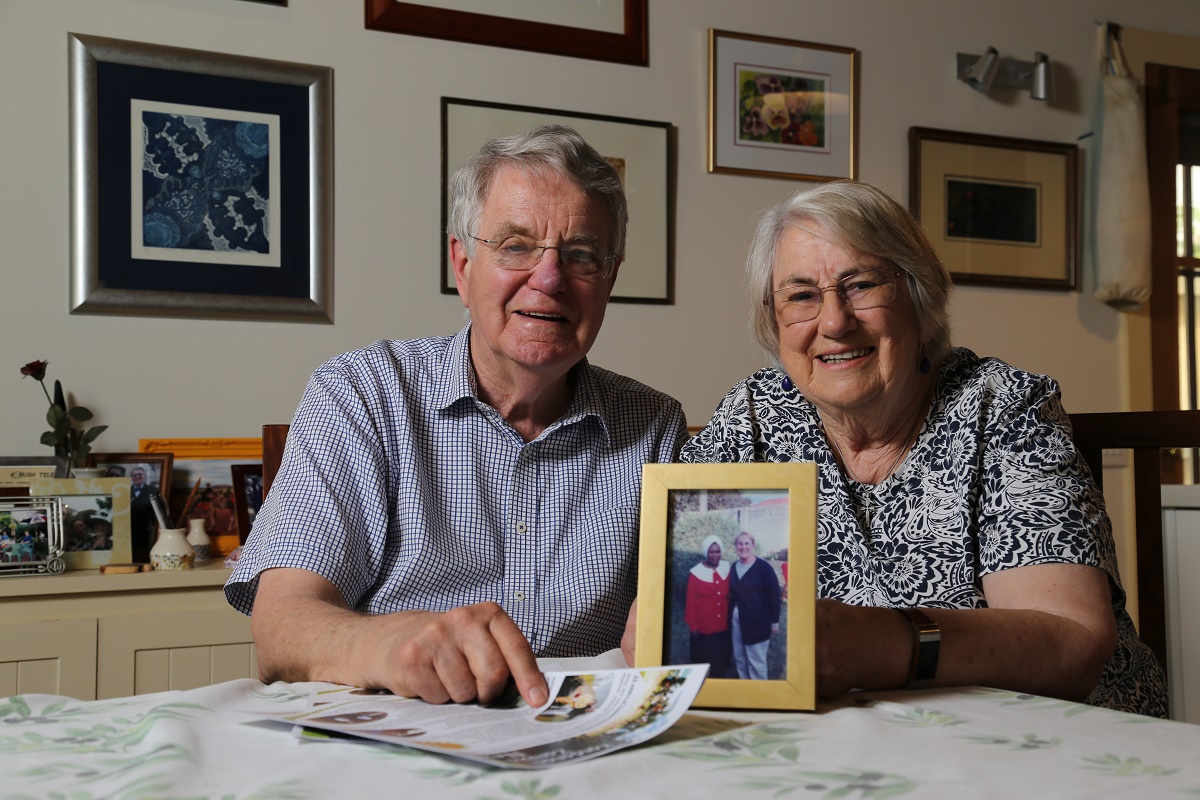
John and Jenny with a photo of Jenny and their inspiration, Harriet Sianjibu-Miyato.
Never ones to do things by halves, the Prestons were able to secure hundreds of second-hand hearing aids, two new audiometers, a hearing aid testing machine and hundreds of new solar-powered hearing aids sourced from Botswana.
But it was Harriet’s work in making education accessible to all Zambian children that touched a chord with them, as they soon realised the difference schooling could make in a child’s life.
Adopting the mantra that one child can educate a whole village, they threw themselves into the task of lifting schooling rates within Zambia.
On their second visit to the country, the Prestons discovered Harriet was working for UNICEF, had designed teaching aids for teachers and had become CEO of the Zambia Open Community Schools program, ensuring orphaned and disabled children could receive an education in their own communities.
They saw great potential in building on Harriet’s outstanding work, knowing more schools meant more opportunities to educate children.
“We worked with Uniting World to build our first school and that meant children didn’t have to travel 20 miles to go to school, which involved a real risk of molestation,” John says.
“It also meant that the children could do their Year 7 exam, which was a major achievement for any child in Zambia.
“We then got involved with a lot of other schools through providing solar power to them.
“We happened to be in Zambia when Jenny read something in the paper about solar power and the international charity Solar Aid, so we travelled to the UK and convinced them to get involved in Zambia, which meant we were able to provide a whole heap of schools with solar power.”
While education has been a key focus for the Prestons, they are immensely proud of other work they have done to provide a better life for many people in Zambia.
In December 2018, they set up the Choma Alcohol and Drug Rehabilitation Organisation, which is dedicated to supporting alcohol and drug addicts, their families and communities.
“CADRO’s motto is ‘from addiction to production’, a sentiment that strongly reflects its belief that every addicted person has the potential to become productive given the appropriate help,” John says.
CADRO has also set up a support group for recovering alcoholics as many clients are from poor households and can’t afford private counselling.
Support group members are also provided with a source of income through a unique environmental project which uses farming waste to make charcoal briquettes, thereby eliminating the need to cut down large areas of forest.
“It’s about the struggle that many people in Zambia have with alcohol and how there is also an environmental element to it by preventing the chopping down of trees, which is normally the easiest way for people to generate income in Zambia by making charcoal,” John says.
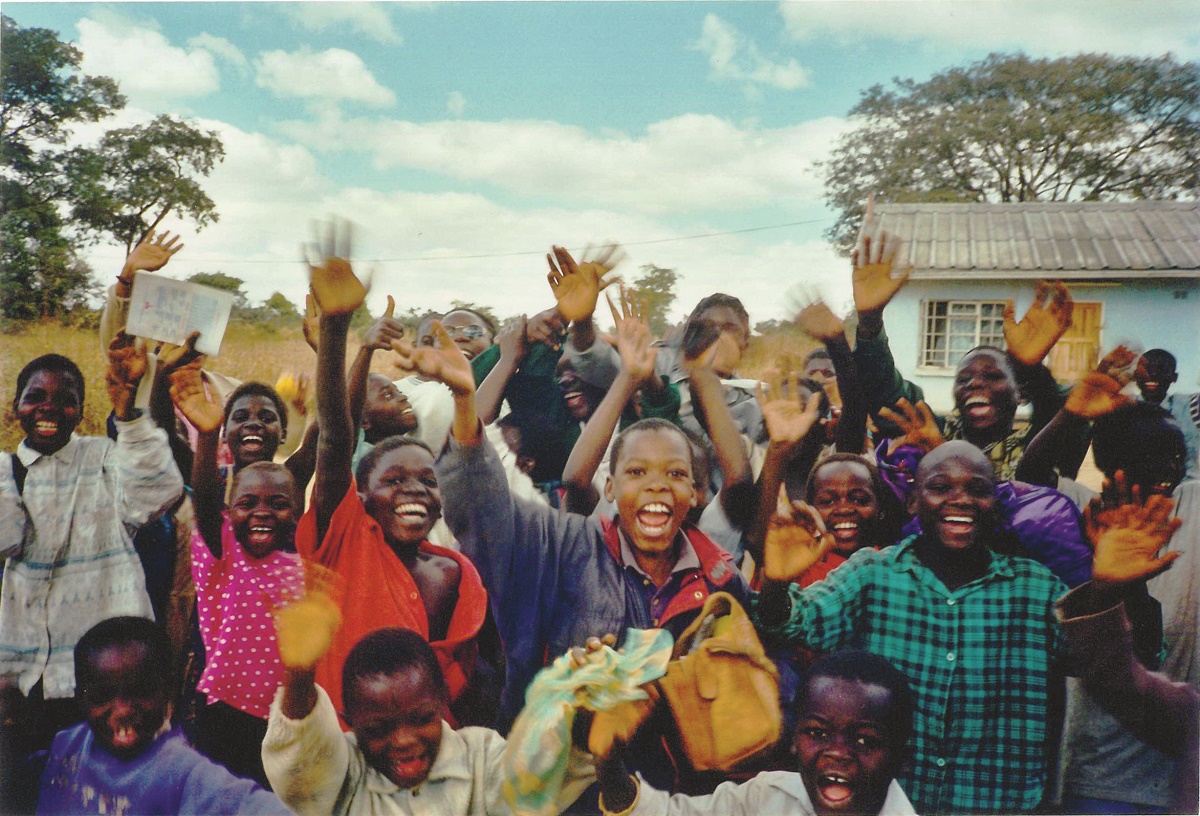
John and Jenny have worked tirelessly to make life better for Zambia’s children.
This year also marks another milestone for the Prestons as they celebrate the 10th anniversary of the creation of Kondanani Zambia, which supports CADRO, disabled, orphaned and vulnerable children and continues the work they have been doing since that first visit in 1996.
“Kondanani means ‘love for’ in one of the local languages and we chose to set up Kondanani Zambia in 2011 because Uniting World decided to pull out and concentrate on Zimbabwe and the southern Sudan area, which was understandable, so we felt we needed to do what we could in Zambia,” John says.
Through Kondanani Zambia, they have been able to continue supporting schools in Zambia, as well as provide a range of items from clothing and books to sewing machines and second-hand computers, which were donated by the Synod’s IT department.
Kondanani Zambia is very much a family affair, with their son and daughters also involved, as well as Jenny’s brother and her sister’s husband.
“Illness means that I can’t go to Zambia any more and I was last there in 2015,” Jenny says.
“But our son Mark and his family are continuing our work there and we took them over in 2015 and introduced them to everyone.”
Jenny has worked out that in just 10 years about $340,000 has been raised through Kondanani Zambia to provide children with an opportunity to live the best life they can.
“We were a bit overcome when we realised how large that figure was, but it’s also thanks to the wonderful generosity of people,” Jenny says.
John says that type of generosity is possible because donors know what a difference their contribution can make in Zambia.
“People sometimes ask why do people give so much to you and I say that as a former member of the Synod’s staff involved in administration, I found that people tend to trust other people, more so than institutions themselves, so I think that’s one of the reasons (people like to donate),” he says.
“The other important point is that we don’t have any administration costs (that donated money would have to go towards), we bear those costs ourselves.
“We found that people really wanted to support a project they can give to and know it will make change, so that is probably why we have been so successful in our own small way.
“We guarantee that every dollar that is donated goes to the work we are doing in Zambia.”
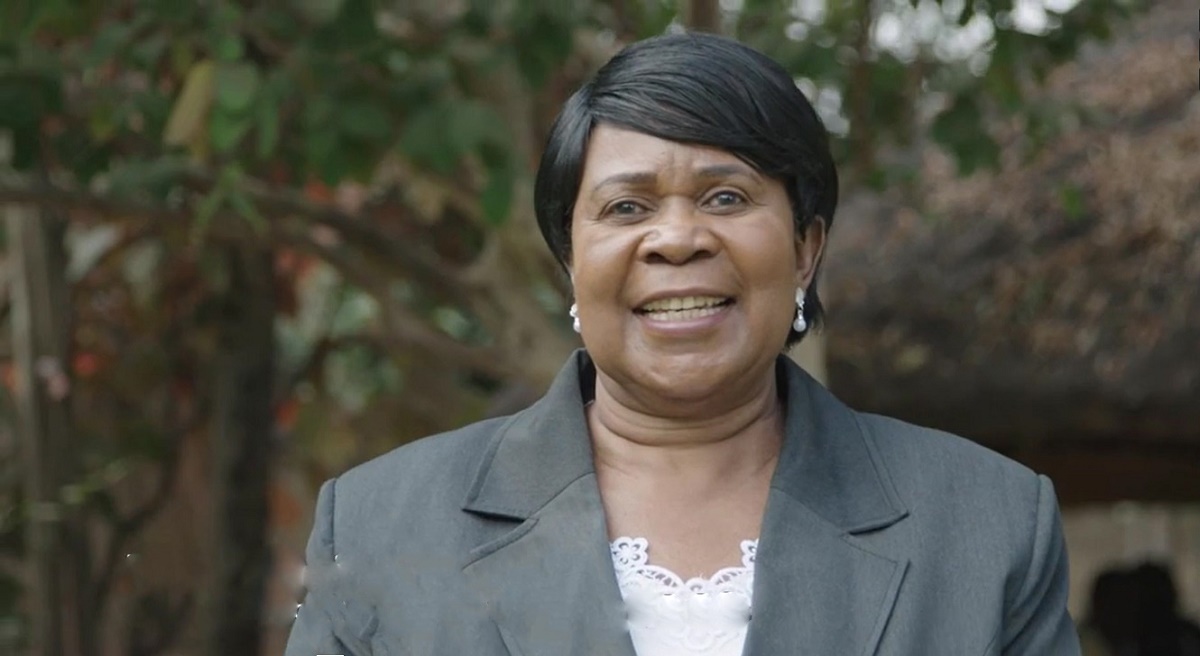
Harriet Sianjibu-Miyato died last year, but her remarkable legacy will live on in Zambia.
Special honour
Two months after Harriet Sianjibu-Miyato died last year, the Zambian government awarded her the posthumous honour of The Order of Distinguished Service, First Division.
Harriet’s daughter Mwaka, who accepted the award with her sister, Yvonne, said her mother was a woman “who could relate with and understand vulnerability and was determined to help in whatever way she could to change the lives of children”.
“Mother believed it was her responsibility to ensure that no child struggled to receive an education,” Mwaka said.
“In her tireless pursuit of educational opportunities for orphaned and vulnerable children, which became the core of her vision to her last breath, we are comforted by this noble honour, knowing that her labour was not in vain.”
John and Jenny Preston said the thought of Harriet more as a sister, than just a friend.
“We see her as part of our family and have had her daughters living with us here at times,” Jenny says. “We are family, it’s as simple as that. She has been our inspiration.”
John and Jenny are determined to help achieve Harriet’s goal of giving every child access to education and earlier this year launched the Harriet Sianjibu Miyato Scholarship Fund, which has already raised about $25,000.
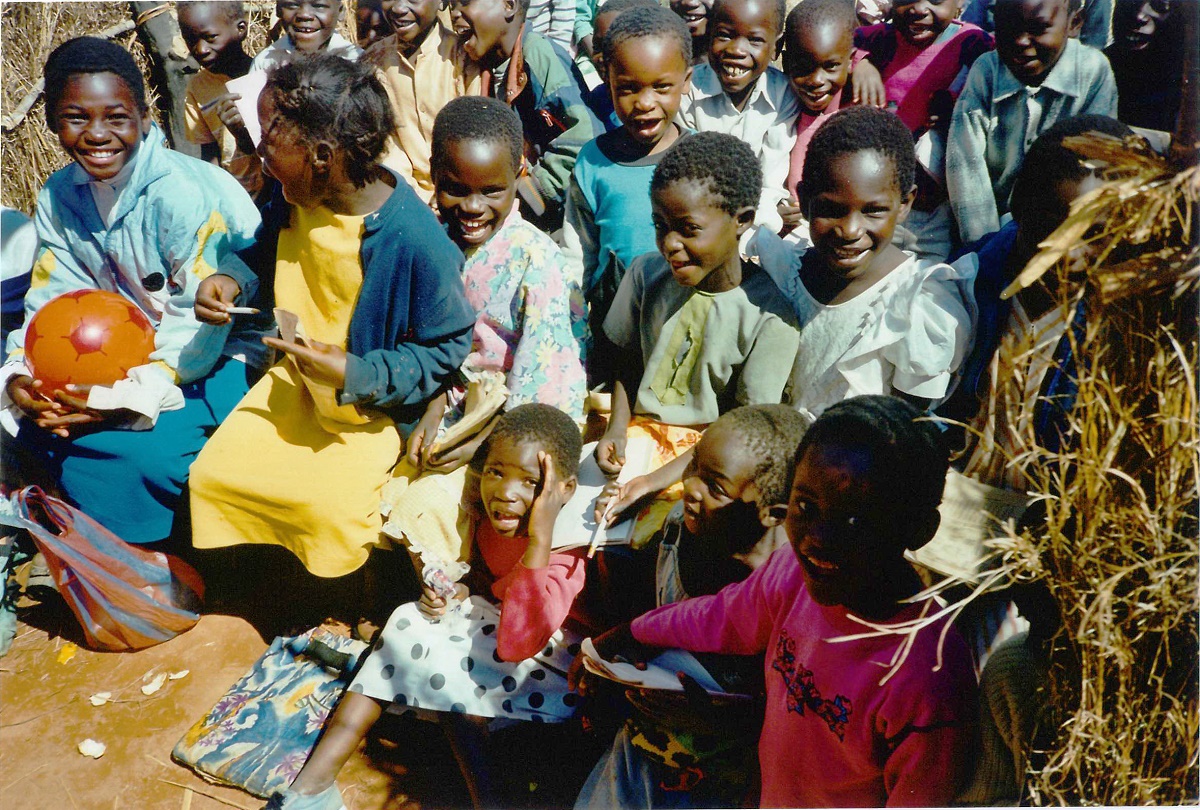
Zambia’s children are benefiting from educational scholarships like those provided by Banyule Network of Uniting Churches members.
Teacher feature
As young Zambian woman Edith Mwauluka sets out on her dream of becoming a qualified teacher, her progress will be watched with much interest from the other side of the world.
Edith has been working as a volunteer teacher at Libuyungu Community School in the Nkeyema District of Zambia’s Western Province and hopes to enhance her skills through a university or college teaching course.
Banyule Network of Uniting Churches members recently set up a scholarship to help Edith achieve her teaching goal.
Church Council Chair Andrew Bennett says the scholarship also recognises the work carried out in Zambia by John and Jenny Preston, who have a long association with the Heidelberg Uniting Church.
“John and Jenny have had a long history with the Heidelberg congregation, part of the Banyule Network, and Jenny used to be a Minister here,” Andrew says.
“Heidelberg members have supported their work in Zambia over the years.”
Andrew says Banyule’s scholarship support for Edith is consistent with its theme of “mission beyond the network”.
“We’re looking for projects where we can make a difference, but still have some connection with the network members,” he says.
“One of our Heidelberg members suggested the work John and Jenny are doing in Zambia, so we contacted John and asked him for suggestions about what we might support.
“One of those suggestions centred around teacher training for Edith and so we have agreed to fund a three-year bursary for her.”
Andrew says the scholarship will benefit more than Edith.
“John and Jenny have done much work with the Zambia Open Community Schools program. This is about working with children who are orphans or are vulnerable, especially children with disabilities,” he says.
“There is a sense that we can contribute to longer-term and transformational change in the lives of many people by supporting Edith to undertake teacher training.
“For us, it’s about being able to do something valuable in another part of the world where there is great need and to do it via a connection with John and Jenny.
“They have invested much time and effort into this work in Zambia and in this way we can honour that.”
Andrew says Banyule’s involvement goes to the heart of what missional work should be about.
“It’s part of the concept that as the Uniting Church we want to support other people and make the world a better place, both locally where we are here in Banyule, but also recognising that we are part of a wider world,” he says.
“We are a rich and wealthy country and we have the capacity to make a much greater impact in countries like Zambia.
“This support represents who we are as the Banyule Network, living out our commitment as Christians that we love God and love our neighbour, whether our neighbour is local or in another part of the world. It’s what we are called to do as Christians.”
For information about supporting Kondanani Zambia, email admin@kondananizambia.org or go to their website at http://www.kondananizambia.org


